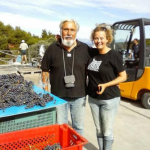With this press release, we want to bring to your attention the concerning situation in Croatia that might significantly influence the country’s economy and society as a whole. Economic Council of Glas poduzetnika made the analysis of the current National Recovery and Resilience Plan that is due by the end of April. We wanted to propose specific measures and aid the Croatian government in speeding up the economic recovery, in order to avoid the 2009 crisis scenario that took Croatia six long years to recover from. Unfortunately, the Croatian government does not want to include social partners in negotiations and is ignoring the actual state of the economy.
Experts from the Economic Council of the Glas poduzetnika have expressed their concerns over the recovery of the Croatian economy from the impacts of the COVID-19 pandemic. As already pointed out on multiple occasions, the National Recovery and Resilience Plan will not allocate enough funds to small and medium-sized enterprises which, in turn, will reflect negatively on Croatia’s economy. The Economic Council of the Glas poduzetnika has therefore analysed the results of both domestic and foreign scientific research papers on the effectiveness of state support given to businesses for development and recovery from the impacts of crises.
The analysis of recovery measures taken by other world economies shows that the majority of countries have directed more substantial shares of their support packages to those businesses (sectors) and citizens who have been hit the hardest. It would be advisable for Croatia to use its EU funds in a similar manner, since it is the road to accelerating economic recovery. However, the Croatian government has opted for a copy/paste approach of recycling projects from the Government 2020-2024 Programme and 2030 National Development Strategy, projects that would have been funded regardless of the pandemic. The current National Recovery and Resilience Plan focuses mostly on projects carried out by state and local authorities; projects with low and long-term return on investments (or even a negative one), which contradicts the general objective of a quick recovery. Academic research has shown that these types of investment deliver a negative return on investment.
Moreover, it should be pointed out that the National Recovery and Resilience Plan proposes the allocation of 54% of funds for the economy and 46% for public sector “reforms”. However, the 54% of funds allocated to the economy include funds for wastewater treatment projects, waste management projects, as well as road construction and transport infrastructure projects, which again implies investment into public companies that have so far proven their low efficiency (companies such as Hrvatske vode, Hrvatske ceste, Hrvatska elektroprivreda, Hrvatske željeznice, and local utilities companies). It can therefore safely be argued that the National Recovery and Resilience Plan is not focused on supporting the private sector or improving the competitiveness of the Croatian economy. Not a single aspect of the current Plan is oriented towards the quick recovery of domestic demand, investment into high return projects or technological innovations.
Making an investment into the private sector a priority, focusing on high return projects and monitoring returns on investments and fiscal impacts, is crucial for the National Recovery and Resilience Plan to generate a greater impact. Besides that, it is necessary to disable corruption channels and preferential, politically influenced allocations in the process of distribution of funds.
The Economic Council proposes the following steps in order to successfully ignite an economic recovery:
- Substantial amendments to the National Recovery and Resilience Plan – a more significant relative share of funds should be directed towards the private sector and citizens for the recovery of aggregate demand, in accordance with recovery plans of other comparable EU Member States.
– Design aid models for citizens who were rendered unemployed due to the pandemic
– Support for private companies should be implemented
– Tax reliefs for hardest-hit sectors
– Renewable energy investments
– Complete transparency of the funding allocation process
- Detailed elaboration of the funding distribution criteria by the Government and ministries. We are entitled to know which criteria and models are being used to determine which sectors and projects receive funding. Without the specified criteria, there are greater risks of an arbitrary, chaotic and politically motivated allocation procedure, which would reduce impacts on economic recovery.
- Absolute transparency of the allocation process and funding management for the National Recovery and Resilience Plan funds, including the analysis of input and output for every finalized project.
- Inclusion of Glas poduzetnika and other interested stakeholders into the funding allocation and evaluation process, which would contribute to the efficiency and supervision of the implementation of the National Recovery and Resilience Plan.
If the Government of the Republic of Croatia continues to insist on the current National Recovery and Resilience Plan, while retaining the existing political and economic limitations, it is realistic to expect a non-effective allocation of the EU funding. This would result in low return on investments and ultimately a subpar recovery. Consequently, lower growth rates and a relative falling behind of Croatia compared to other EU member states can be expected. The National Recovery and Resilience Plan represents an opportunity for reforms in Croatia, for the strengthening of the rule of law, reduction of corruption, strengthening of market institutions and market freedoms, thus creating conditions for EU funds to be used effectively for enabling fast-paced economic growth. The abovementioned can only be accomplished through private sector investments, innovations, and investments in new technologies, which would ultimately help create a sustainable and competitive economic structure in Croatia.
“According to the currently proposed National Recovery and Resilience Plan, only 7% of funds will be allocated to the private sector. All infrastructural, digitalization, and green economy investments (54%) will, in line with the standard Croatian political and economic pattern, end up in the quasi-private sector, in the hands of companies associated with the political structures. We consider this to be the worst possible scenario for an investment of this type of funds, simply because it generates negative return on investment. With such distribution of the funds we cannot expect a strong economic recovery nor sustainable economic growth.” – said Vuk Vuković, Ph.D., the head of the Economic Council of the Glas poduzetnika.
*Members of the Economic Council of the Glas poduzetnika include: Vuk Vuković, PhD (Oxford), Prof. Jakša Cvitanović, PhD (CalTech), Ria Ivandić (LSE/Oxford), PhD, Leonard Kukić, PhD (Carlos III, Madrid), Prof. Boris Podobnik, PhD (Boston/Rijeka/ZSEM), Vedrana Pribičević, MSc (ZSEM), Mislav Radić, PhD (LSE) and Stjepan Srhoj, PhD (Sveučilište Dubrovnik).
***
The GLAS PODUZETNIKA (VOICE OF ENTREPRENEURS) initiative took off as a self-organization of citizens, mostly small business owners, after the Croatian government presented the first package of measures for the salvation of the economy, deemed insufficient by the Initiative. Having gathered more than 100,000 micro, small and medium-sized entrepreneurs, small business owners, self-employed, employees in the private sector in less than 15 days and has attracted massive media attention owing to its uncompromising demands, GLAS PODUZETNIKA has positioned itself as a relevant factor in public discussions concerning the new economic direction Croatia should take. This was confirmed by the Government when it included some of the proposals made by the Initiative into the second package of measures, affirming its undeniable influence. The GLAS PODUZETNIKA was founded at the request of the Initiative members, and it has since its establishment gathered more than 16,700 members and more than 200,000 supporters.
To read more about business in Croatia, follow TCN’s dedicated page.










